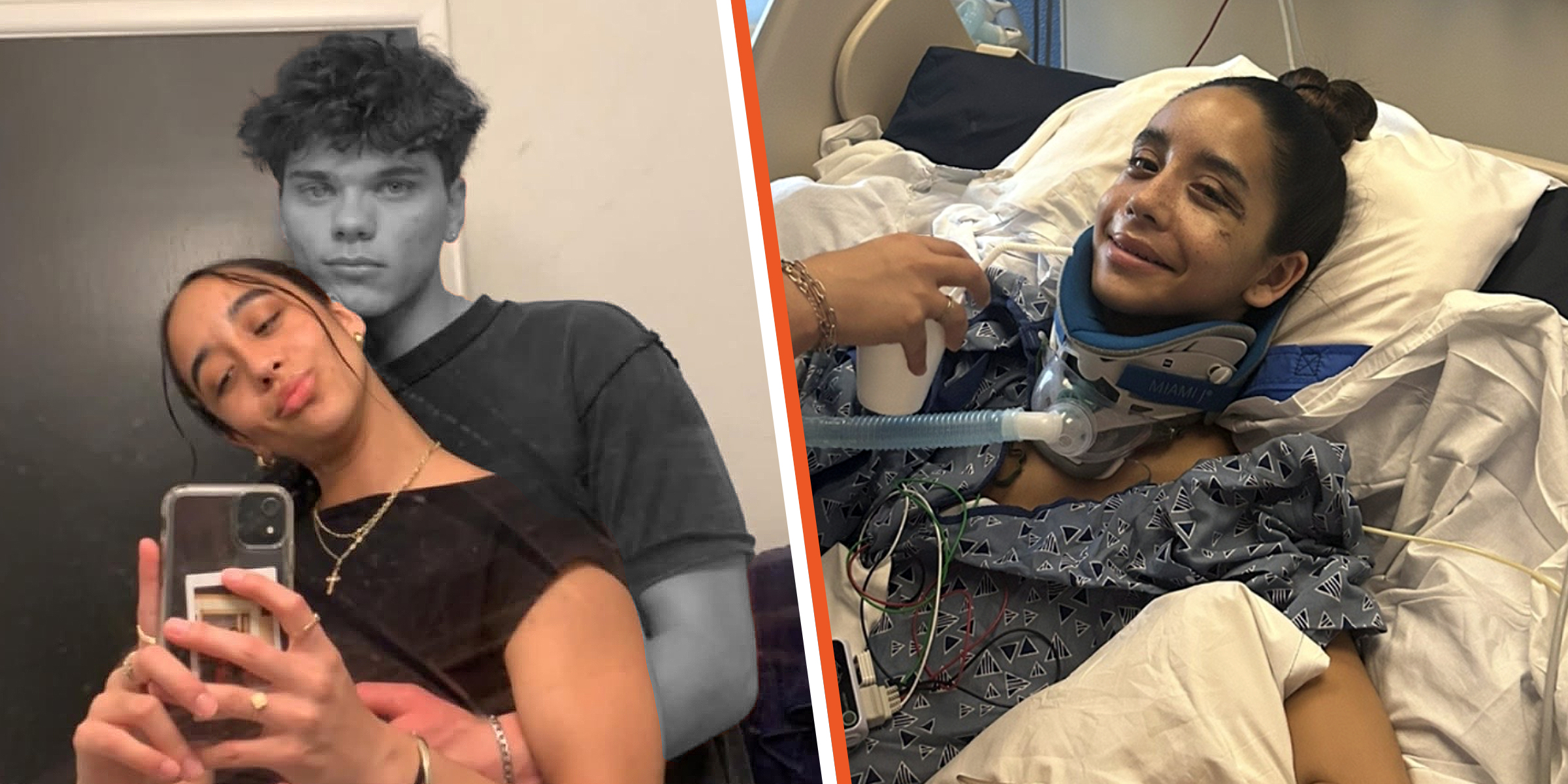Ben Sutter was never supposed to eat. Not birthday cake at a party, not turkey at Thanksgiving, not even a slice of toast. Diagnosed with a rare immune disorder as a toddler, he spent most of his life unable to digest solid food without risking internal damage.
But at 24, something extraordinary happened. For the first time, Ben is not just allowed to eat, he’s learning how. And as he chews through fear, faith, and unfamiliar flavors, he’s uncovering far more than just the taste of food. He is also sharing the journey with the world.
Early Signs and Misdiagnosis
Ben’s journey with food, or the absence of it, began before he could even walk. As an infant, he was in constant distress. He rarely slept through the night and would wake up crying every few hours.
To soothe him, his exhausted parents resorted to driving him around the neighborhood in the middle of the night, sometimes two or three times before dawn, just to get him back to sleep.
It wasn’t until Ben was 15 months old that the cause of his suffering was uncovered: eosinophilic gastroenteritis, or EGE, a rare and chronic condition that causes the immune system to treat food like a harmful invader. His immune cells, called eosinophils, flooded his digestive tract and triggered severe reactions to nearly everything he ate.
According to the Cleveland Clinic, eosinophilic gastritis occurs when too many eosinophils accumulate in the stomach lining. These white blood cells normally help fight infection, but in this disease, they mistakenly attack the body’s own tissues.
This can result in symptoms like nausea, pain, difficulty swallowing, and in severe cases, internal inflammation that requires long-term dietary management or medication. For Ben, even breast milk caused intense immune reactions. As his mother, Cindy, later recalled, “We went from doctor to doctor and nobody knew what was wrong.”
It was only after she joined an early online group in the early 2000s that a fellow parent suggested EGE. Cindy followed up with a specialist in Cincinnati, who confirmed the diagnosis based on Ben’s records. From that point on, it was confirmed that food was a threat to Ben’s body.
Even breast milk triggered extreme responses. Doctors prescribed a specialized, hypoallergenic formula called Neocate Splash, which was broken down into amino acids and designed to be allergy-proof. From the age of 15 months, this formula was Ben’s only nutrition.
By age 3, Ben was diagnosed as “failure to thrive,” a clinical term for infants and toddlers who cannot gain weight or grow adequately. To help him survive, doctors inserted a gastrostomy tube, or G-tube, directly into his stomach.
It ensured he received enough nutrients, bypassing the dangerous reactions caused by oral feeding. For the next 13 years, he relied on that tube to receive daily feedings. The G-tube was connected to a small pump that delivered two cartons of formula for 30 to 60 minutes, depending on the setting.
He used it every day until he turned 16. As he got older, Ben transitioned to drinking the formula directly from its cartons, what he calls “juice boxes.” But while the delivery method changed, the contents never did.
His mother and father, Matt and Cindy, worked tirelessly to normalize his experiences as much as possible, even as they navigated a condition few others understood.
Life on Medical Formula
For most of his childhood and adolescence, Ben’s life revolved around one drink: Neocate Splash. Packaged like a child’s juice box but engineered for survival, it was his only source of calories, vitamins, and minerals.
By high school, he carried them everywhere in a small black bag filled with cartons, drinking about one every hour to stay nourished. Each box contained 237 calories, and he consumed around 12 a day, totaling roughly 2,800 calories.
Though technically sustaining, this routine meant Ben never learned the most basic human skill: eating. He didn’t chew. He didn’t swallow food. And while he could smell what others were eating, he had no sense of what flavors actually tasted like.
Despite that, his hunger was real. “I do absolutely [feel hungry],” he explained in one of his videos. “They fill me up for about an hour…but yeah, I definitely feel hungry.”
Ben’s allergy list included milk, eggs, wheat, soy, peanuts, and even latex. Trying a new food wasn’t as simple as taking a bite. It was a strict, grueling process: First, he’d undergo an upper endoscopy, a minor surgical procedure under anesthesia, to ensure his esophagus showed no internal inflammation.
Then he’d eat the same test food every single day for a full month, without changing anything else in his diet. A second endoscopy would follow. If the results showed no reaction, the food was deemed safe. But most attempts failed. And the burden of constant testing left its mark.
By the time he turned 20, after more than 20 upper endoscopies, only three foods — potato, rice, and corn — had cleared the process. Even those safe foods came with caveats.
Ben only liked them in crunchy textures, like chips, because they were the only sensations that felt familiar and right. Soft foods made him uncomfortable, almost nauseated. The idea of eating was so foreign that he simply stopped trying.
He shared, “I just never had an interest.” With time, the exhaustion and disappointment caught up with him. “I slowly gave up wishing for it at every birthday,” he wrote in his testimony. “And at the age of 14, I gave up all hope that things would ever change.”
Emotional Toll and Family Dynamics
Living with EGE shaped not only Ben’s body, but his emotions. Even though his family did everything they could to support him, the psychological impact of being different was hard to ignore. As a child, he was acutely aware of how his experience stood apart from that of his three brothers.
Simple family moments often highlighted what he lacked. On holidays like Halloween and Thanksgiving, when food is central to the celebration, Ben couldn’t partake. His mother worked hard to keep him included, turning sugar and water into edible treats or crafting cotton candy into a birthday “cake,” but those efforts didn’t erase the isolation.
“They’re like, ‘Why can’t I [have that]?'” Cindy recalled of her other three boys. It was difficult to explain why Ben got special meals that weren’t really treats, just workarounds for survival. Cindy and Matt strived to create a balanced household.
With one son allergic to peanuts, another allergic to milk, and Ben allergic to nearly everything, they tried to treat each child fairly while addressing their individual needs. Still, Ben couldn’t help feeling alienated. “I felt like they weren’t happy with who I was,” he wrote. “I felt entirely unloved.”
Hoping to support his development, his parents enrolled him in a program called “Brain Balance,” designed to help children with behavioral and neurological challenges. But to Ben, it felt dehumanizing. Instead of feeling nurtured, he interpreted the experience as an attempt to fix him, to make him more acceptable.
It reinforced a belief that something about him was broken. As the years passed and no medical changes came, Ben’s inner world darkened. He described contemplating suicide, though he never acted on those thoughts. Instead, he endured, living with quiet despair.
Turning Point: God and Grace
At 15, Ben’s life shifted when he met Grace. She was his first romantic partner and the first person outside his family to fully accept him without conditions. “She listened to me and cared about me,” Ben recalled. “She never once cared that I could never eat a meal with her.”
Grace’s presence brought more than comfort; it sparked hope. Around the same time, Ben’s health stabilized enough that he no longer needed the feeding tube and had begun living entirely off his formula while navigating a world that still didn’t accommodate his condition easily. Despite that, things seemed manageable.
But the relationship eventually became strained. Arguments grew more frequent, and Ben’s prayers didn’t seem to change anything. The couple broke up. “The only person who ever loved me was gone. I was broken,” he wrote. That loss devastated him more deeply than he expected.
Soon after, Ben returned to church. During an altar call, where congregants are invited to the front for prayer, he stood in silent desperation and asked God for peace. What happened next changed everything. “All of a sudden I stopped crying. I had perfect peace,” Ben penned. “God became real. And so did His love for me.”
That experience became the cornerstone of Ben’s faith and personal transformation. He said, “God changed me when He met me at the altar… God has managed to do what I thought was impossible.” For the first time in years, Ben believed change was possible, not just emotionally, but physically.
The Medical Breakthrough
Just when Ben had stopped believing his body could change, his mother brought him unexpected news. A medication called Dupixent had shown promise in treating eosinophilic disorders like his. Though hesitant at first, Ben agreed to give it a try.
The treatment began with cautious optimism. For one month, he took the medication and waited. Then came the test that had defined so much of his life: an upper endoscopy. The scope examined his esophagus for any sign of internal swelling or inflammation.
This time, for the first time in 16 years, the results came back clear. No swelling. No reaction. No immune attack. The implications were staggering. He no longer needed to trial each new food one by one through weeks of strict testing and scopes.
His doctor explained that the medication had reduced the overactive eosinophils in his system enough that he could safely eat from entire food groups — fruits, vegetables, and meats — excluding seafood and known allergens like milk and eggs.
Suddenly, Ben had access to more food than he’d ever imagined possible. But the news didn’t feel joyful — it felt terrifying. “I was afraid,” he admitted. “You were told every single day of your childhood that if you eat [sic] food, you could get hurt.”
That fear wasn’t irrational. It was embedded in his body, his memory, and his routines. Food had never been associated with joy. It had meant risk, discomfort, and disappointment. And now, standing at the edge of a new beginning, he didn’t know how to take the first step.
Relearning to Eat
With medical clearance to eat nearly anything except seafood and major allergens, Ben faced a world of options and none of the skills to navigate it. His first food trial was simple but symbolic. Back at home after his final scope, Ben’s wife — yes, by now Grace was no longer his girlfriend but his wife — placed a baby carrot and a piece of celery in front of him.
They were both crunchy, which helped ease the transition. Still, he froze. “I was sweating, just staring at the food,” Ben remembered. “I was so nervous, so afraid.” That moment highlighted just how complex eating had become. It wasn’t just about his body anymore. It was about habit, psychology, and sensory overload.
He eventually took a minuscule bite, so small his wife joked she couldn’t even see it. He hated the taste, tossed the rest in the trash, and walked away. Ben realized then that the process wouldn’t be simple. Crunchy textures still appealed to him, the only consistent sensation he knew.
Toast, in particular, became a symbol of anticipation. “Toast was just as good as it got, and I could not wait to try toast,” he said. But even that came with complications. His stomach, used to digesting 237-milliliter juice boxes, had never been stretched by volume.
Even a small sandwich — a few leaves of lettuce and a slice of ham — left him full and uncomfortable. “By the time that’s done, I’m basically full,” he said. “And it takes me half an hour to eat that.” Seasonings were another shock.
Salt was familiar from chips, but even mild spices like pepper overwhelmed him. “I tried pepper for the first time recently. It’s really spicy,” he said with a laugh. “All flavors are overwhelming. Everything is just kind of turned up.”
Still, he pushed forward. Some foods surprised him, in good ways and bad. MadeGood granola bars became a go-to: easy, slightly crunchy, and accessible. Apples, on the other hand, looked promising but felt too sticky and wet. “There’s a lot more to food than just texture,” Ben observed.
He also had to build habits that most people learn in childhood. “I haven’t even built the habit of sitting down to eat food. I haven’t built the habit of preparing food. I don’t know how to cook,” he admitted. The learning curve wasn’t just about taste. It was about time management, meal planning, and social routines.
Despite the challenges, Ben leaned into the experience. He documented each bite, reaction, and realization on TikTok, turning his long-awaited first meals into a shared journey for thousands of viewers.
Living Fully, Beyond Food
Despite spending more than two decades without it, he built a full, vibrant life. He graduated from college, traveled, got married, and nurtured a close relationship with his family. None of those milestones required a plate at the table.
Yet he is the first to admit how deeply food shapes society. “You sort of realize how much society is built around food… birthday parties and events,” he told People magazine. “There’s always some aspect that involves food, and I think you don’t really realize that until you aren’t able to participate in it.”
His parents, Matt and Cindy, had always encouraged him to embrace life beyond his restrictions. They prioritized connection over consumption. Dinners were never about what was on the table, but about who was around it. “It was about spending time with family,” Ben remembered. “It was about learning about each other’s days.”
That mindset followed him into adulthood. While others suggested he try beer, steak, or pizza now that he could, Ben made his decisions based on smell and texture, particularly crunch. Even now, he has no interest in forcing himself to eat something just because it’s popular.
The sense of autonomy he developed from years of careful trial and error still guides him. He has received hundreds of comments from strangers, many of them stunned by how long he lived without solid food. One person asked if he ever felt hungry. Another wanted to know if he missed food at all.
“Food still really smells good,” Ben explained in a TikTok post. “Even foods I haven’t tried smell good… but I have no desire to try it because I don’t know what it’s going to taste like.”
Ben is sharing his journey publicly, so others who feel isolated by medical conditions can see what’s possible. He doesn’t believe his life began when he started eating. “There’s a lot of life to enjoy,” he said. “And it doesn’t have to be around food.”


